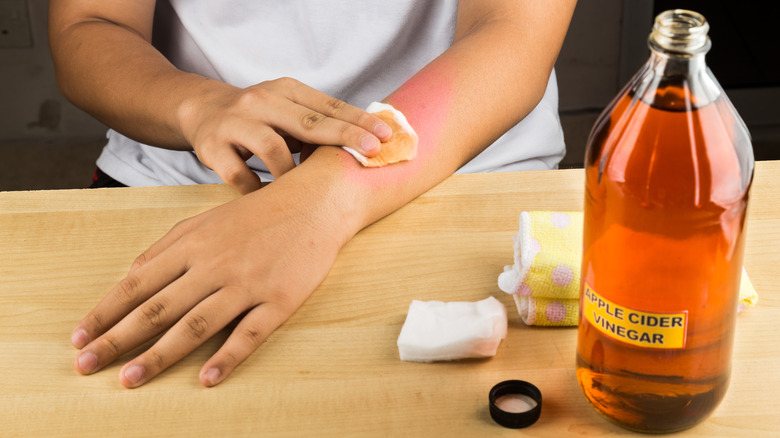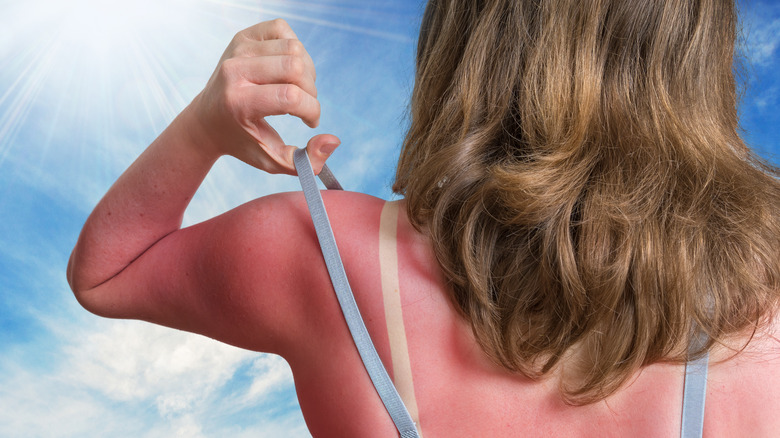Can You Really Use Vinegar To Treat A Sunburn?
Some people swear by vinegar for a variety of ailments.
This functional beverage has been used as medicine for centuries. Hundreds of years ago, doctors prescribed it for stomach pain, diabetes, infections, and sores, according to a 2006 review published in Medscape General Medicine. Current evidence supports its antimicrobial and anti-tumor properties.
In clinical trials, vinegar reduced blood pressure and blood sugar levels and improved diabetes symptoms. Some studies suggest that it may also help in the treatment of nail fungus, warts, and other skin conditions, but more research is needed to confirm these findings, reports the above review. This brings up the question, can you really use vinegar to treat a sunburn?
The acetic acid in this beverage is said to reduce pain and inflammation, leading to faster healing — but it's important to do your own research first, particularly when applying it topically to a burned area. That's why we looked into it.
Why you shouldn't use vinegar for a sunburn and what to do instead
Despite its potential benefits, vinegar is by no means a cure-all. As dermatologist Carol Cheng told Business Insider, vinegar is highly acidic and may "damage the already compromised skin barrier."
Vinegar has an acidic pH of 2 or 3, according to the dermatologist, and applying vinegar on irritated skin like a sunburn can further increase pain and inflammation. Moreover, it can dry your skin and actually slow the healing process.
These side effects are due to the naturally occurring acids in vinegar, explains Cheng. Acetic acid, citric acid, and other compounds may not be safe for irritated skin and can cause severe chemical burns. What you should do is take a cold shower or apply cold compresses on the affected areas, recommends Cheng. Another option is to use aloe vera gel, which may help soothe irritated skin and speed up healing.
The Skin Cancer Foundation recommends soaking a clean towel or cloth in ice-cold water and then placing it on the affected area. Gently massage your skin with a moisturizing lotion (without any petroleum- or oil-based compounds) after showering. Aspirin, ibuprofen, and other non-steroidal anti-inflammatory drugs (NSAIDs) may help, too.
Your symptoms should subside within three to five days, according to the CDC. Reach out to your doctor if you have a fever or severe pain that lasts longer than 48 hours, or if the sunburn covers more than 15% of your skin.

